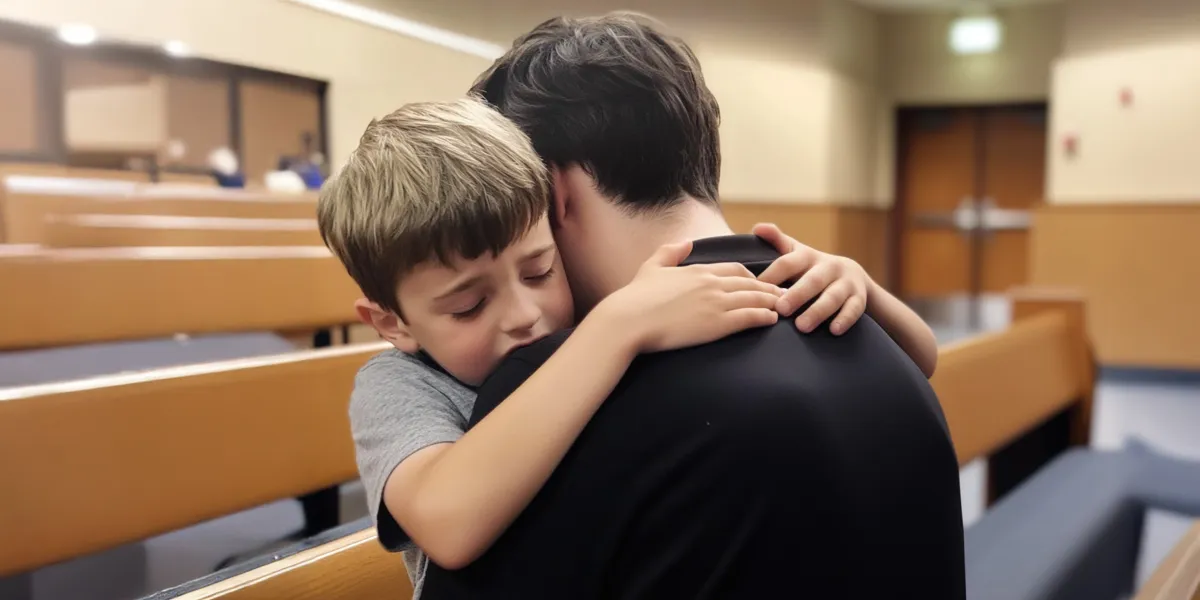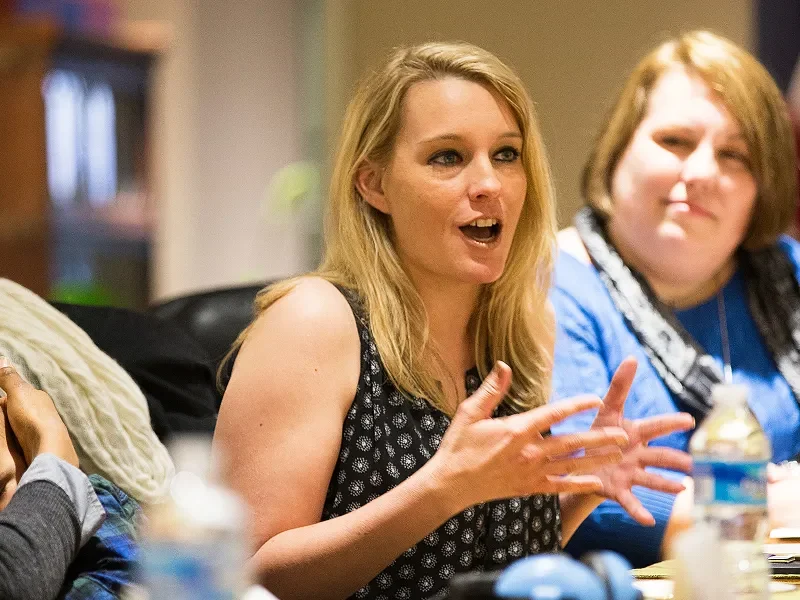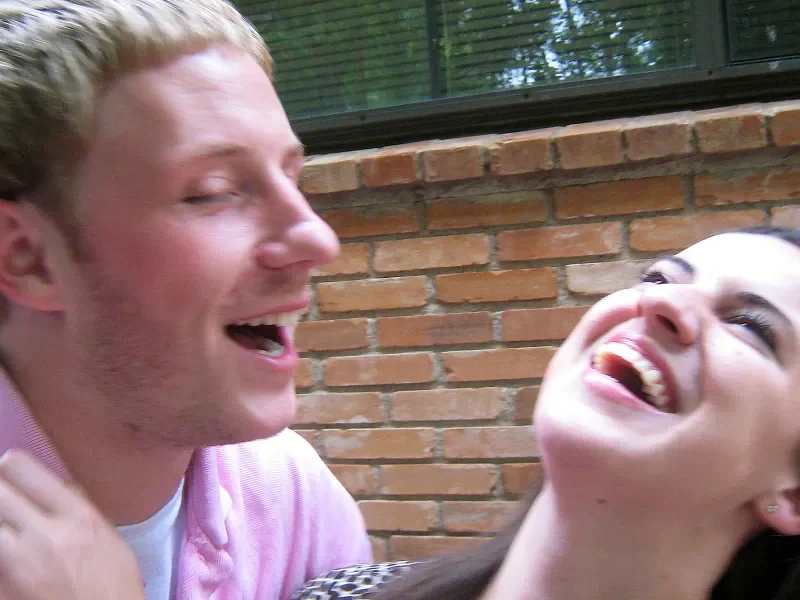The day after I buried my parents, I became an adult. Not because I turned eighteen, but because someone tried to take the only family I had left. And I wasn’t about to let that happen.
As an 18-year-old boy, I never imagined I’d be facing the hardest chapter of my life — burying both of my parents and being left with my six-year-old brother, Max, who still thought Mommy was just on a long trip.
To make matters worse, the day of the funeral was my birthday.
People said “Happy 18th” like it meant something.
It didn’t.
I didn’t want cake. I didn’t want gifts. I just wanted Max to stop asking, “When’s Mommy coming back?”
We were still in our black clothes when I knelt at the grave and whispered a promise to him: “I won’t let anyone take you. Ever.”
But I guess not everyone agreed with that plan.
“It’s for the best, Ryan,” Aunt Diane said, her voice wrapped in fake concern as she handed me a mug of cocoa I didn’t ask for. She and Uncle Gary had invited us over a week after the funeral. We sat down at their perfect kitchen table. Max played with his dinosaur stickers while they stared at me with matching pity faces.
“You’re still a kid,” Diane said, touching my arm like we were friends. “You don’t have a job. You’re still in school. Max needs routine, guidance… a home.”
“A real home,” Uncle Gary added like they’d rehearsed the line.
I stared at them, biting the inside of my cheek so hard it bled. These were the same people who forgot Max’s birthday three years in a row. The same ones who bailed on Thanksgiving because of a “cruise.”
And now they wanted to be parents?
The next morning, I found out they’d filed for custody. That’s when it hit me, this wasn’t a concern.
This was strategy. And deep down, I knew something was wrong. Diane didn’t want Max because she loved him.
She wanted him because of something else.
And I was about to find out what. I wasn’t going to let them win.
The day after Diane filed for custody, I walked into the college office and withdrew. They asked me if I was sure. I said yes before they finished the sentence. Education could wait. My brother couldn’t.
I picked up two jobs. During the day, I was the guy showing up with bags of food, a smile plastered on my face no matter how rude the customer. At night, I cleaned law offices — ironic, considering I was gearing up for my own legal battle.
We moved out of our family home. I couldn’t afford it anymore. Instead, Max and I squeezed into a shoebox studio apartment that smelled like floor cleaner and old takeout. The mattress touched one wall, and the futon touched the other. But despite all that, Max smiled.
“This place is tiny but warm,” he said one night, wrapping himself in a blanket like a burrito. “It smells like pizza… and home.”
Those words almost broke me. But they also kept me going. I filed the papers for legal guardianship. I knew I was young. I knew the odds. But I also knew Max needed me and that had to count for something.
Then everything turned to hell one morning.
“She’s lying.” I stood frozen in the living room, staring at the Child Services report in my hands.
“She said what?” I whispered, voice hollow.
The social worker didn’t look me in the eye. “She claims you leave Max alone. That you scream at him. That you’ve hit him… more than once.”
I couldn’t speak or think. All I could see was Max’s face — his laugh when I made silly voices, the way he curled up next to me during thunderstorms. I would never hurt him.
But Diane had planted doubt. And doubt is a dangerous thing.
What she didn’t count on was Ms. Harper — our neighbor, a retired third-grade teacher who watched Max while I pulled double shifts. She marched into court like she owned the building, clutching a manila envelope and wearing a pearl necklace that glittered like armor.
“That boy,” she said, pointing at me without hesitation, “is raising his brother with more love than most parents give their kids in a lifetime.”
Then she turned to the judge, narrowed her eyes, and said, “And I’d like to see anyone try to say otherwise.”
Winning in court wasn’t easy, but Ms. Harper’s testimony gave us a lifeline. The judge agreed to delay permanent custody and granted Diane supervised visitation instead. It wasn’t a full win but it was enough to breathe again.
Every Wednesday and Saturday, I had to drop Max off at Diane’s place. It made my stomach twist every time, but the court ordered it, and I didn’t want to give them another excuse to question me.
One Wednesday evening, I showed up a little earlier than usual. The house was quiet, too quiet. Diane answered the door with that tight smile she always wore when she was pretending to be human.
Max ran to me, his cheeks blotchy, tears smeared across his face.
“She said if I don’t call her Mommy, I won’t get dessert,” he whispered, clutching my hoodie like it was his life raft.
I knelt down, brushing his hair back. “You never have to call anyone Mommy but Mom,” I told him. He nodded, but his lip quivered.
Later that night, after I got him tucked into bed, I stepped out to take the trash down. I didn’t mean to eavesdrop. But as I passed the side of the building near Diane’s kitchen window, I heard her voice, sharp, smug, and echoing from a speakerphone.
“We need to speed this up, Gary. Once we get custody, the state will release the trust fund.”
I froze.
Trust fund? I didn’t know Max had a trust fund.
I waited until the line went dead, then rushed back inside and spent half the night digging. My hands shook as I read the documents. A $200,000 fund was set up by our parents before their accident for Max’s future, his college, and his life.
And Diane wanted it.
The next night, I went back. Same spot, same window. This time, I hit record on my phone. Gary’s voice filtered out. “Once the money hits our account, we can send Max to boarding school or something. He’s a handful.”
Then Diane laughed, a sound that made my skin crawl. “I just want a new car. And maybe that Hawaii vacation.”
I stopped the recording, my heart pounding like a drum in my ears.
The next morning, I sent it to my lawyer.
After breakfast, I walked into Max’s room, and he looked up from his coloring book.
“Is the bad part over?” he asked softly.
I smiled for the first time in weeks.
“It’s about to be.”
At the final custody hearing, Diane walked in like she was heading to a church picnic. Pearl necklace gleaming, lips stretched into a too-wide smile, and a tin of homemade cookies balanced in her hands. She even offered one to the bailiff.
My lawyer and I walked in with something a bit more compelling — the truth.
The judge, a stern woman man, listened quietly as my lawyer pressed play. The audio filled the courtroom like a dark cloud creeping through the walls.
“We need to speed this up, Gary. Once we get custody, the state will release the trust fund…”
And then Gary’s voice: “Once the money hits our account, we can send Max to boarding school or something. He’s a handful.”
The judge’s face changed slowly, like someone flipping a dimmer switch from polite to disgusted. When the recording ended, silence hung in the room like a noose.
“You manipulated this court,” the judge finally said, her voice as cold as stone. “And used a child as a pawn for financial gain.”
Diane didn’t smile anymore. Her lipstick looked cracked. Gary’s hands trembled in his lap. Not only did they lose the custody battle, they were immediately reported for attempted fraud. I watched as the cookies were quietly pushed to the side and never touched.
That afternoon, the judge granted me full legal guardianship of Max. She even added that I will be considered for housing support, noting my “exceptional effort under challenging circumstances.”
Outside the courthouse, Max held my hand so tight I thought he might never let go.
“Are we going home now?” he asked, his voice small but steady.
I knelt beside him, brushing his hair back like I always did. “Yeah,” I said, barely holding back tears. “We’re going home.”
As we walked down the steps, we passed Diane. Her makeup was smudged, her mouth twisted in a bitter scowl. She didn’t say a word.
She didn’t have to.
It’s been two years. I’m working full-time and taking college courses online. Max is in second grade, thriving. He tells his friends I’m his “big bro and hero.” We still share a tiny apartment, still argue over what movie to watch, and still laugh at bedtime stories gone wrong.
I’m not perfect. But we’re safe. We’re free. We’re us.
Because love isn’t measured in years or bank accounts. It’s measured in the fight.
And when Max looked at me tonight and whispered, “You never gave up on me,” I told him the only thing that mattered.
“I will Never.”


